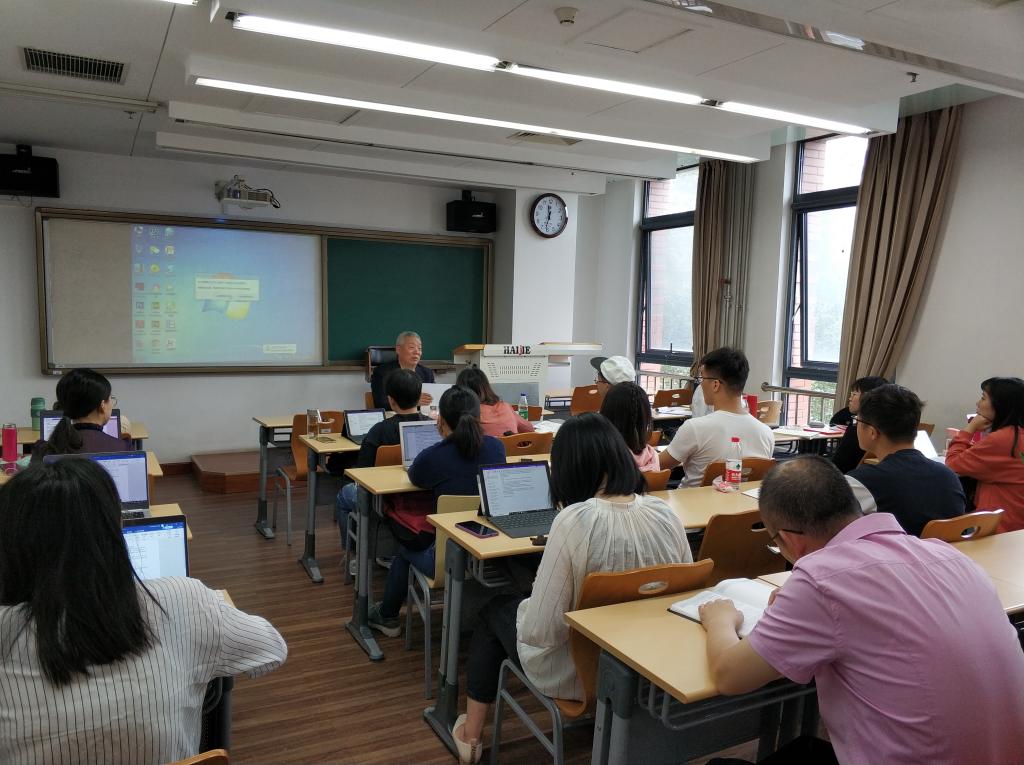On the morning of September 19, 2019, the 364th Global Human Rights Forum series was held at the A209, Research Building, College Road, China University of Political Science and Law. Shen Yongxiang, Distinguished Professor at China University of Political Science and Law, gave a wonderful lecture entitled “Right to peace and Related Issues” to students. This lecture was hosted by Professor Zhang Wei.

First, Professor Shen Yongxiang introduced the nature of the right to peace, the relief channels and the theory of three generations of human rights. At present, there are two main disputes about the nature of the right to peace in the international community. One of the debates is whether the right to peace is a human right. Western countries do not regard the right to peace as a human right, while developing countries and the United Nations consider the right to peace as a human right, and the right to peace is the prerequisite for the realization of other human rights. The second controversy is whether the right to peace is a political right or a legal right. Professor Shen believes that although the right to peace is stipulated in the Declaration on the Right to Peace, it has not been confirmed by law, so the right to peace is only a political right, not a right in the legal sense. There are two ways of the legal remedies for the right to peace. First, the Security Council should decide whether aggression exists or not. Second, resort to the International Court of Justice. Professor Shen pointed out that the effectiveness of legal remedies is unsatisfactory because the actions of the Security Council are subject to the jurisdiction of the permanent members and the International Court of Justice. Subsequently, Professor Shen gave a detailed introduction to the specific content of the three generations of human rights theory. The first generation of human rights is civil and political rights, emphasizing that government power needs self-compression. The second generation of human rights are economic, social and cultural rights, which need to be guaranteed by the state through positive measures. The third generation of human rights refers to the rights with the nature of collective human rights, including the right to peace and the right to development.
Then, Professor Shen Yongxiang pointed out the three major reasons for the opposition of the West to the right to peace and the exception to the right to peace. The first reason is that Western countries consider peace important, but peace is not a right, let alone a human right. The second reason is that from the perspective of common sense, the right to development is a collective human right, but the United States and other Western countries pay attention to individual human rights and exclude collective human rights. The third reason is that Western countries, which are superior to force, are unwilling to be bound by the right to peace. What constitutes an exception to the right to peace? Professor Shen listed the following eight types: legitimate defense, collective defense, national liberation movement, preemptive strikes, combating terrorism, invitations from legitimate governments, humanitarian interference and protection, and resistance to aggression.
Later, Professor Shen described the significance of the right to peace on the international political level. First, the right to peace is in line with the concept of China's peaceful diplomacy. Advocating the right to peace is conducive to international recognition. Second, the right to peace is in line with the common aspirations of the people of the world. Third, the right to peace is in line with the desire to maintain world peace. Fourth, the right to peace contributes to the advancement of human rights. Fifth, the right to peace is conducive to building a community of human destiny. In addition, Professor Shen emphasized, "The right to peace does not mean the complete exclusion or abandonment of the use of force."
Finally, Professor Shen Yongxiang suggested that students develop the habit of thinking independently and forming their own opinions. The lecture ended satisfactorily with the enthusiastic applause of the students.

Written by Ruan Sha